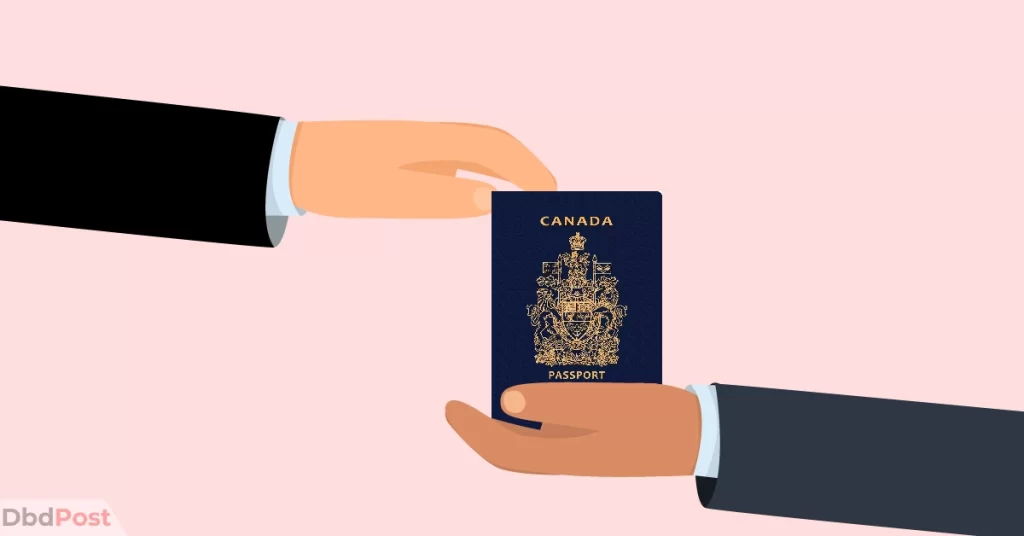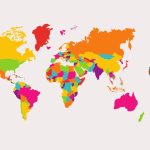Obtaining a PR in Canada is the dream of many individuals and families. So, how to get PR in Canada is a burning question among millions of people.
To obtain PR in Canada, find a program that meets your criteria and assess your eligibility based on factors like age, education, language proficiency, and work experience. Then create a profile, receive an invitation to apply, submit a complete application, and undergo medical and security checks. Once your application is approved, you will receive PR status, allowing you to live and work in Canada.
After consulting with immigration lawyers and experts, we have created a comprehensive guide on how to obtain permanent residency in Canada, which includes all the necessary steps explained in detail.
Furthermore, our guide offers exclusive and beneficial insights that can facilitate a smoother PR application process.
Choose the right program
Choosing the right program for Canada PR is a crucial step in the process.
It is important to research and compare the available programs to determine which aligns best with you. The programs require different sets of skills, qualifications, and experience.
Some of the most popular programs include:
1. Canadian Experience Class (CEC)

The Canadian Experience Class (CEC) allows workers and graduates with Canadian work experience for PR.
The CEC program aims to attract skilled professionals who have established themselves in Canada and wish to obtain permanent residency.
The eligibility criteria for Canadian Experience Class (CEC) are as follows: [1]Canada government, “CEC requirement, … Continue reading
- 12 months of full-time work experience in Canada within the last three years, or the equivalent of part-time hours (1560).
- Work experience must be in one of the National Occupational Classification (NOC) levels 0, 1, 2, or 3.
- No formal education is required, but a diploma can benefit the profile.
- A recognized language test is necessary to prove language proficiency in either English or French.
- Individuals with a student visa are not eligible to apply.
2. Federal Skilled Worker Program (FSWP)
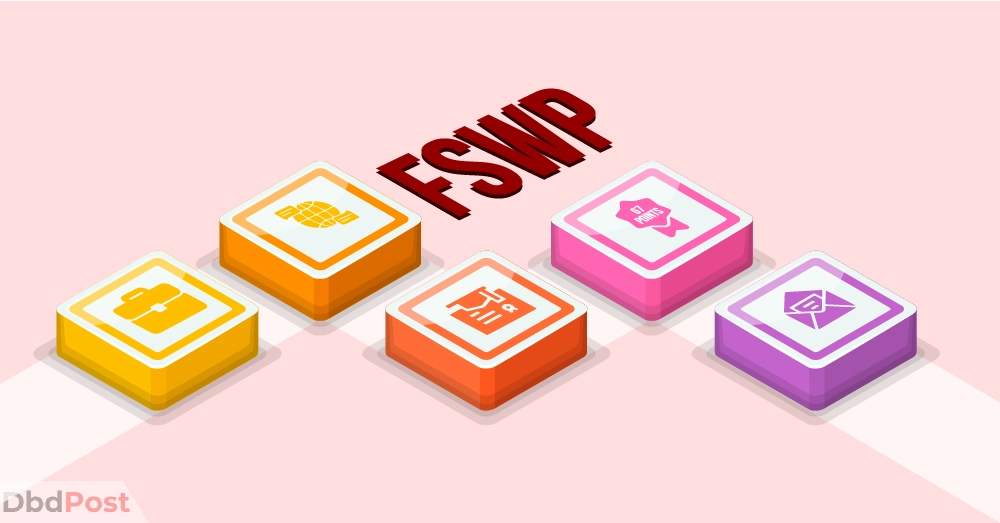
The Federal Skilled Worker Program offers permanent residency in Canada to skilled workers with foreign work experience.
The application is assessed based on a 100-point grid considering language, age, work experience, education, an arranged employment offer, and adaptability.
To be eligible, applicants must meet the following criteria: [2]Canada government, “FSWP requirement, https://www.canada.ca/en/immigration-refugees-citizenship/services/immigrate-canada/express-entry/eligibility/federal-skilled-workers.html”
- A minimum of one year of continuous, full-time (or equivalent part-time) work experience in a National Occupational Classification (NOC) category of 0, A, or B within the last ten years.
- Canadian Language Benchmark (CLB) scored 7 in all four language abilities.
- A high school education or equivalent is required.
- Must score at least 67 points to qualify for the program.
- Receive an Invitation to Apply (ITA) for permanent residency if the score meets or exceeds 67 points.
3. Provincial Nominee Program (PNP)
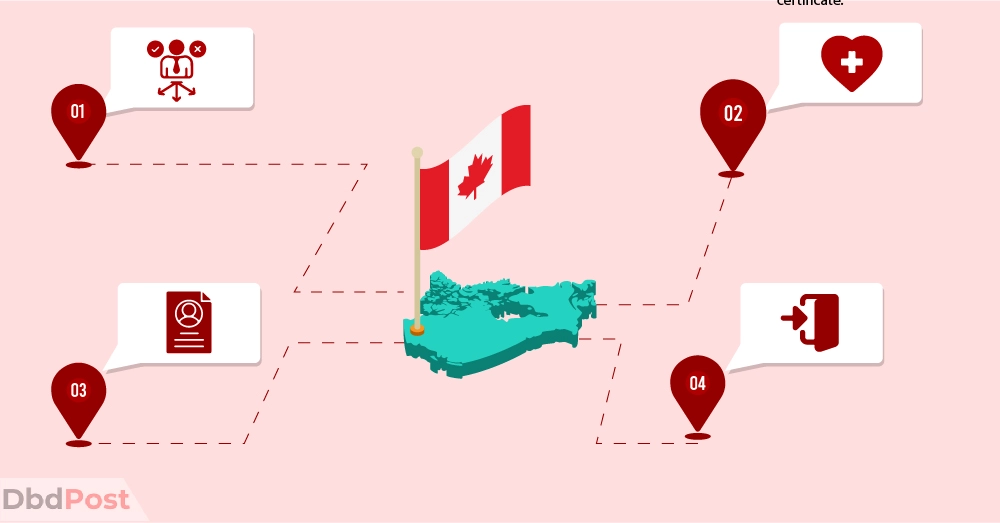
The Provincial Nominee Program (PNP) is a Canadian immigration program that allows provinces and territories to nominate skilled workers for permanent residency.
The application process involves applying through either the Non-Express Entry or Express Entry system methods, receiving an invitation from the province, and then submitting an electronic application to IRCC with all necessary documents.
The eligibility criteria for Provincial Nominee Program (PNP) are as follows: [3]Canada government, “PNP requirement, https://www.canada.ca/en/immigration-refugees-citizenship/services/immigrate-canada/provincial-nominees/works.html”
- Each province and territory has streams or immigration programs that target specific groups, such as students, business people, skilled workers, and semi-skilled workers. Applicants must meet the eligibility requirements of the province that nominates them.
- Pass a medical exam and obtain a police clearance certificate.
- Submit an electronic application to Immigration, Refugees, and Citizenship Canada (IRCC) with all necessary documents.
- Applicants must meet the minimum criteria for Express Entry, including being eligible for one of the immigration programs it covers and having the proper NOC code in their Express Entry profile.
4. Federal Skilled Trades Program (FSTP)
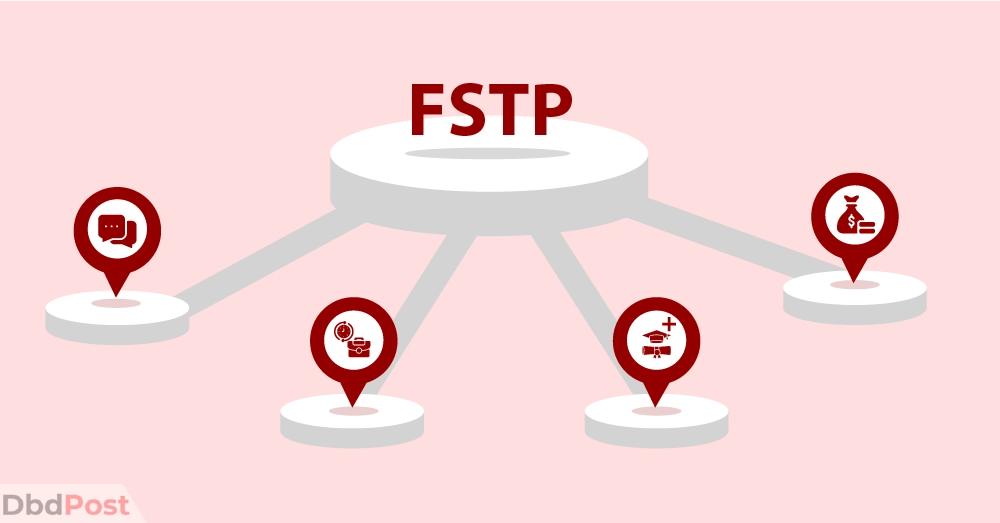
The Federal Skilled Trades Program (FSTP) is a great way for skilled workers to become permanent residents of Canada.
To be eligible for the Federal Skilled Trades Program (FSTP) under the Express Entry system, the applicant must meet the following requirements: [4]Canada government, “FSTP requirement, https://www.canada.ca/en/immigration-refugees-citizenship/services/immigrate-canada/provincial-nominees/works.html”
- Must meet the minimum score of Canadian Language Benchmark 5 for speaking and listening and Canadian Language Benchmark 4 for reading and writing.
- Must have at least 2 years of full-time work experience in a skilled trade within the past 5 years. The work experience must be paid and meet the job requirements in the National Occupational Classification (NOC).
- There is no specific education requirement for the FSTP, but having a certificate, diploma, or degree from a Canadian institution may improve the applicant’s rank in the Express Entry pool.
- The applicant must demonstrate sufficient funds to support themselves and their family in Canada.
The Canada PR process: Step by step
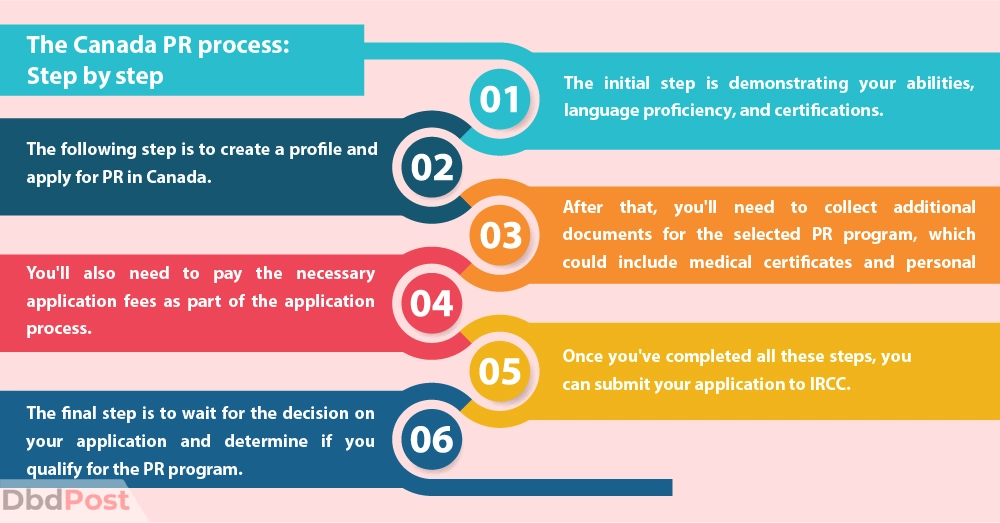
To become a permanent resident of Canada, you must follow several steps. It’s important to note that this is a general guideline, and additional requirements may be based on the PR program you’re applying for.
The initial step is demonstrating your abilities, language proficiency, and certifications. The Canadian visa officer will use this information to determine which PR program you are eligible for.
The following step is to create a profile and apply for PR in Canada. This profile will be used to monitor your application and keep you updated on its status.
After that, you’ll need to collect additional documents for the selected PR program, which could include medical certificates and personal references.
You’ll also need to pay the necessary application fees as part of the application process.
Once you’ve completed all these steps, you can submit your application to IRCC.
The final step is to wait for the decision on your application and determine if you qualify for the PR program.
Now, let’s take a closer look at the requirements for various PR programs.
Method 1. Provincial Nominees Program (PNP)
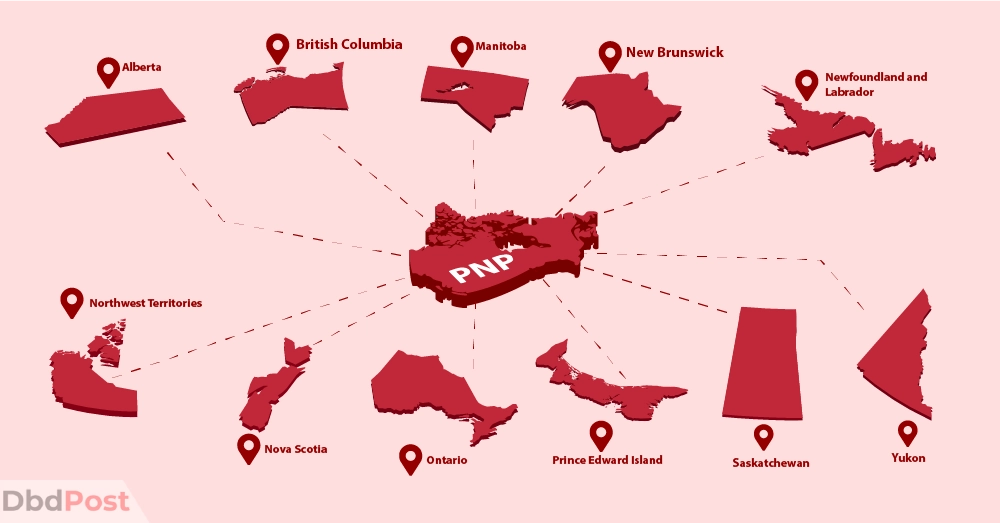
The Provincial Nominee Program (PNP) allows provinces and territories to nominate individuals who wish to immigrate to Canada.
The program is designed for individuals with the skills, education, and work experience to contribute to the economy of a specific province or territory.
Each province and territory has its unique streams and requirements for the program. These streams may target different groups of individuals, such as students, business people, skilled workers, and semi-skilled workers.
The provinces you can process to apply for Canada PR at the moment are:
- Alberta
- British Columbia
- Manitoba
- New Brunswick
- Newfoundland and Labrador
- Northwest Territories
- Nova Scotia
- Ontario
- Prince Edward Island
- Saskatchewan
- Yukon
Eligiblility
You need to meet the minimum requirement of the specific territory. Also, after application, you need to be nominated on the stream.
Documents required
- Generic application form to Canada (IMM 0008)
- Schedule A: background/declaration (IMM 5669)
- Additional dependants/declaration (IMM 0008DEP) (if applicable)
- Supplementary information (IMM 5562)
- Schedule 4: Economic Classes – Provincial Nominees completed by the principal applicant.
- Schedule 4A: Economic Classes – Provincial Nominees – Business Nominees (if applicable)
- Additional Family Information (IMM 5406)
- Representative information (IMM 5476) (if used)
- Passport (Number, issue date, expiry date, name, date of birth)
- Medical exam certificate
- Police clearance certificate
- Education certificates
- Proof of funds
- Confirmation of nomination from the province
- Proof of language proficiency (IELTS, CELPIP, or TEF)
- Fee payment slip
- Photos that are taken within six months before the application
- Marriage certificate and spouse identity (if applicable)
- Children’s information like birth or adoption certificate (if applicable) [5]Canada government, “IMM5690, https://www.canada.ca/content/dam/ircc/migration/ircc/english/pdf/kits/forms/imm5690e.pdf”
Application fees
- 850 CAD processing fee
- 515 CAD of the right of permanent residence fee
- 1365 CAD for a spouse or common-law partner with the right of PR (if included)
- 230 CAD per child (if included)
- Biometrics: 85 CAD for individuals and 170 CAD per family (2 or more)
- Any third-party fees (if applicable) [6]Canada government, “Fees, https://www.cic.gc.ca/english/information/fees/fees.asp#permanent”
Processing time
The duration of processing is not set and can fluctuate based on several variables, such as the volume of applicants and the length of time it takes for verification.
Typically, it takes about 21 months to process an application for Permanent Residency through the Provincial Nominee Program.
Method 2. Quebec-selected skilled worker
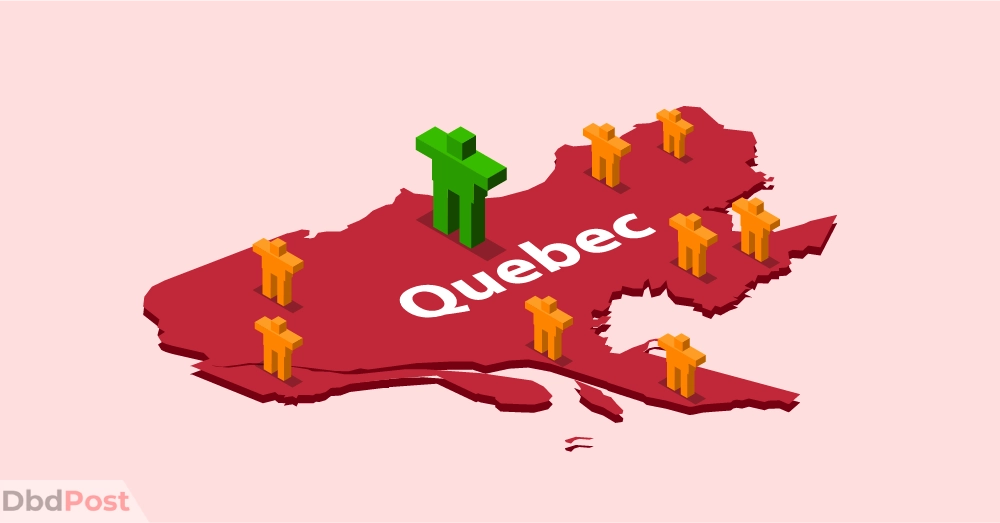
This immigration program offers skilled workers who want to live in Quebec with a PR. The province has different sets of rules for choosing immigrants compared to other provinces.
Eligible
You can apply for this immigration program if you have a Quebec Selection Certificate (Certificat de sélection du Québec). The requirements are the same as the eligibility for PR in Canada from India.
Documents required
- Generic application form to Canada (IMM 0008)
- Schedule A: background/declaration (IMM 5669)
- Additional dependants/declaration (IMM 0008DEP) (if applicable)
- Supplementary information (IMM 5562)
- Schedule 4: Economic Classes – Provincial Nominees completed by the principal applicant.
- Schedule 4A: Economic Classes – Provincial Nominees – Business Nominees (if applicable)
- Schedule 5: Declaration of Intent to Reside in Quebec
- Additional Family Information (IMM 5406)
- Representative information (IMM 5476) (if used)
- Passport (Number, issue date, expiry date, name, date of birth)
- Medical exam certificate
- Police clearance certificate
- Education certificates
- Proof of funds
- Confirmation of nomination from the province
- Proof of language proficiency (IELTS, CELPIP, or TEF)
- Fee payment slip
- Photos are taken within six months before the application
- Marriage certificate and spouse identity (if applicable)
- Children’s information like birth or adoption certificate (if applicable) [7]Canada government, “IMM5690, https://www.canada.ca/content/dam/ircc/migration/ircc/english/pdf/kits/forms/imm5690e.pdf”
Application fees
- 850 CAD processing fee
- 515 CAD of the right of permanent residence fee
- 1365 CAD for a spouse or common-law partner with the right of PR(if included)
- 230 CAD per child (if included)
- Biometrics: 85 CAD for individuals and 170 CAD per family (2 or more)
- Any third-party fees (if applicable)
Processing time
The Ministry of Quebec is responsible for processing all PR applications, including Canada pr from India. Most applications for direct PR in Canada are processed within six months. [8]Quebec, “Processing times, … Continue reading
Method 3. Business immigration to Canada from UAE
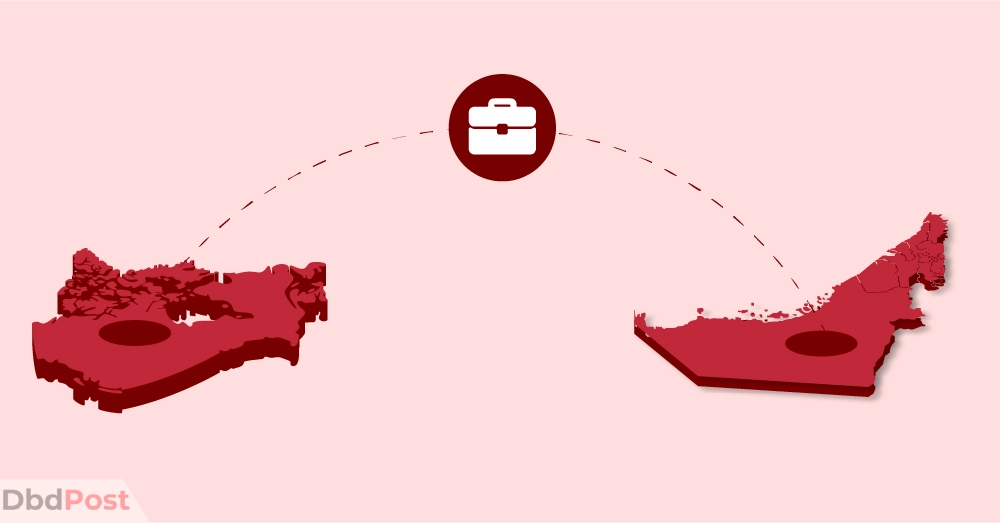
This program is for people looking to expand their business or start a new one in Canada. You can choose from two types of programs Self-employed and Start-up visa programs.
Eligible
You need at least two years of relevant work experience for a self-employed visa. Also, you must score at least 35 in the selection grid that determines your potential contribution to Canada. [9]CIC, “Self-employed, https://www.cic.gc.ca/english/helpcentre/answer.asp?qnum=286&top=6”
Whereas for a start-up visa, there are four requirements. First, you need a qualifying business with a letter of support from the predefined investor or venture capital. You need to meet language requirements with proof of settlement funds.
One thing to remember is that this program does not apply to Quebec province.
Documents required
- Generic application form to Canada (IMM 0008)
- Schedule A: background/declaration (IMM 5669)
- Additional dependants/declaration (IMM 0008DEP) (if applicable)
- Supplementary information (IMM 5562)
- Schedule 13 – Business Immigration Programs – Start-Up Business Class (IMM 0008 – Schedule 13)
- Additional Family Information (IMM 5406)
- Representative information (IMM 5476) (if used)
- Passport (Number, issue date, expiry date, name, date of birth)
- Proof of language proficiency
- Letter of support
- Identity and Civil Documents
- Medical exam certificate
- Police clearance certificate
- Education certificates
- Proof of funds (Settlements funds)
- Confirmation of nomination from the province
- Proof of language proficiency (IELTS, CELPIP, or TEF)
- Fee payment slip
- Photos taken within six months before the application
- Marriage certificate and spouse identity (if applicable)
- Children’s information like birth or adoption certificate (if applicable) [10]Canda government, “Business immigration requirements, https://www.canada.ca/content/dam/ircc/migration/ircc/english/pdf/kits/forms/imm5760e.pdf”
Application fees
- 1625 CAD for application
- 515 CAD for the right of permanent residence fee
- 1365 CAD processing fee, 850 CAD, and right of permanent residence fee of 515 CAD for spouse (if included)
- 230 AED per child (if applicable) [11]Canada government, “Business immigration fees, … Continue reading
Processing time
The processing time depends on various factors, but the government gives an estimation. Self-employed have to wait up to 41 months for their business visa, but luckily, those applying for start-up visas only have to wait 32 months. [12]Canada government, “Processing times, https://www.canada.ca/en/immigration-refugees-citizenship/services/application/check-processing-times.html”
Method 4. Work visa for immigration to Canada from UAE
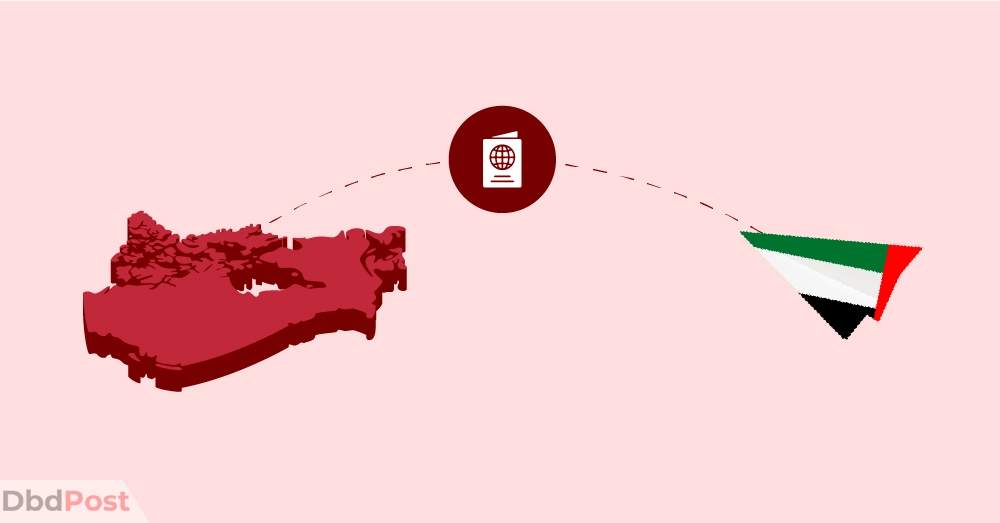
Moving to Canada from the United Arab Emirates (UAE) is easier with the work visas the country offers. There are two different types you can apply for to make sure you’re allowed to live and work in Canada.
The open work permit lets you find a job when you enter the country or at the border. The other type is an employer-specific work permit, which only allows you to work for a predefined employer listed on your permit.
Eligiblity
To qualify for a work permit, you must show an officer that you will leave Canada when your permit expires. And you need proof of enough money for yourself and your family during your stay and for going home.
A clean record free from criminal activity is mandatory. Also, remember to take any extra documents the officer needs as proof that you can enter the country.
Documents required
- Application for a work permit
- Family information for 18 years and above
- Statutory declaration of common law union
- Use of representation (if applicable)
- Passport (Number, issue date, expiry date, name, date of birth)
- Proof of current immigration status
- Confirmation indicating you meet job requirements
- Copy of Labour Market Impact Assessment (LIMA) by your employer, Employment and Social Development Canada (ESDC)
- Valid Certificate d’acceptation du Quebec (CAD) (if applicable)
- Copy of Provincial Nominee offer (if applicable)
- Proof of language proficiency
- Education certificates (if necessary)
- Proof of funds
- Fee payment slip
- Photos taken within six months before the application
- Marriage certificate and spouse identity (if applicable) [13]Canada government, “IMM5488, https://www.canada.ca/content/dam/ircc/migration/ircc/english/pdf/kits/forms/imm5488e.pdf”
Application fees
- 155 CAD per person
- 465 CAD for performing artists in groups of 3 or more
- 155 CAD for a new work permit
- 200 CAD to renew a work permit [14]Canada government, “Work permit fees, https://www.cic.gc.ca/english/information/fees/fees.asp#:~:text=Work%20Permits%20(including%20extensions”
Processing time
Processing time for successful work visa applications typically takes about 30 days.
However, this may change from country to country since everyone’s situation and paperwork are different.
Method 5. Family Sponsorship for immigration to Canada from UAE
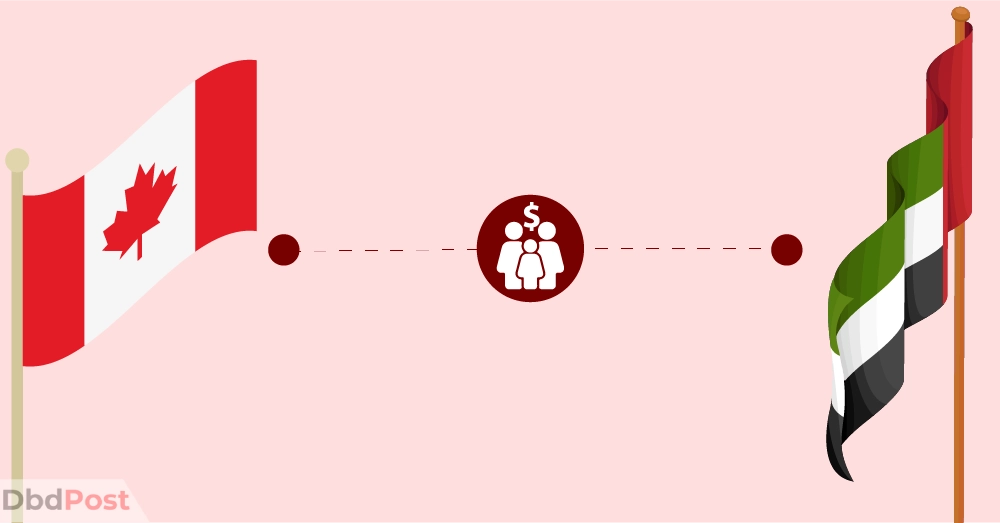
In this program, Canadian citizen can sponsor their spouse, relative, and children. They can apply for CIC permanent residence application by qualifying specific requirements.
Eligible
To be eligible, you must be at least 18 years old and have a Canadian Permanent Resident holder, family member, or registered in Canada as an Indian under the Canadian Indian Act.
Your sponsor must show that they can provide enough money to meet your basic needs, like food and shelter.
Additionally, your family member must be able to repay any provincial social assistance you get. If you’re coming from Quebec, you must also meet Quebec’s immigration sponsorship requirements.
Documents requirements
- Sponsorship agreement and undertaking (IMM 1344)
- Financial evaluation (IMM 1283)
- Generic application form to Canada (IMM 0008)
- Schedule A: background/declaration (IMM 5669)
- Additional Family Information (IMM 5406)
- Representative information (IMM 5476) (if used)
- Statutory declaration of common law union (IMM 5409)
- Medical condition statement
- PR copy of sponsor on both sides
- Photocopy of marriage certificate (if applicable)
- Passport (Number, issue date, expiry date, name, date of birth)
- Proof of language proficiency
- Police clearance certificate
- Education certificates (if any)
- Fee payment slip
- Photos taken within six months before the application
- Children’s information like birth or adoption certificate (if applicable) [15]Canada government, “IMM 5287, … Continue reading
Application fees
- 1,080 CAD for 22 years or older with the right of permanent residence
- 1,080 CAD to spouse with the right of permanent residence
- 1,080 CAD to sponsor parent or grandparent with the right of permanent residence
- 155 CAD for dependent child (or to be adopted) [16]Canada government, “Sponsorship fees, https://www.cic.gc.ca/english/information/fees/fees.asp#:~:text=permanent%20residence%20fee-,Family%20sponsorship,-Adopted%20children%20and”
Processing time
It will take anywhere from 13 months to 38 months, depending on the country and relative. [17]Canada government, “Processing time, https://www.canada.ca/en/immigration-refugees-citizenship/services/application/check-processing-times.html”
The most can take for grandparents and the least for a spouse.
Method 6. Student Visa for immigration to Canada from UAE
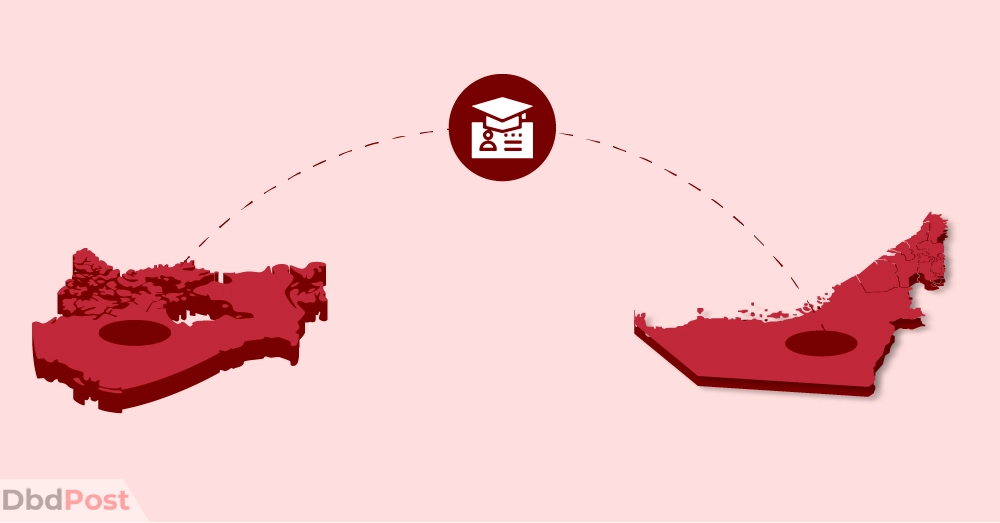
If you’re from the United Arab Emirates (UAE) and interested in studying abroad, Canada is a great choice. You can attend any accredited Canadian university or college with a student visa.
Depending on your visa rules, you may even be able to work while studying or after graduating. In some cases, this means you can work more than 20 hours each week off campus.
Eligibility
Obtaining a student visa for migration to Canada from the United Arab Emirates offers a fantastic chance for many individuals.
To start with, the individual must possess sufficient funds to cover their tuition fees and cost of living while in Canada.
Additionally, they must complete a language examination recognized by the Canadian government. Other qualifications for permanent residency in Canada include having a clean criminal record and good health to study or work.
Documents required
- Proof of study permit application
- Proof of identity: Valid passport or travel document (Green card if from US)
- A letter of explanation
- A Québec Acceptance Certificate (CAQ) (if applicable)
- Proof of a Canadian bank account with funds
- Guaranteed Investment Certificate (GIC) from a participating Canadian financial institution
- Proof of a student or education loan from a bank (if applicable)
- Your bank statements for the past 4 months
- A bank draft that you can convert to Canadian dollars
- Proof you paid tuition and housing fees
- A letter from your financial sponsor (if applicable)
- Proof of funding paid from within Canada, if you have a scholarship (if applicable) [18]Canada government, “Documents required, https://www.canada.ca/en/immigration-refugees-citizenship/services/study-canada/study-permit/get-documents.html”
Application fees
- 150 CAD per person
- 350 CAD to restore a study permit [19]Canada government, “Student visa fees, https://www.cic.gc.ca/english/information/fees/fees.asp#temporary:~:text=Study%20Permits%20(including%20extensions)”
Processing time
It usually takes about 9 weeks for your application to be processed for a student visa.
Wait for a decision

While waiting for a decision, you need to regularly check your emails so you don’t miss any updates.
Also, collecting additional documents you might need after approval and improving your portfolio is a good idea.
Application approved
Once you’ve applied, you’ll need to wait for your decision. The IRCC will contact you via mail if you’re qualified for immigration. They will mail you the Confirmation of Permanent Residence (COPR) and a visa if necessary.
After applying, check your emails regularly, so you get all updates.
The IRCC will issue your first Canadian citizenship when you arrive in Canada.
Many helpful services in Canada can help you settle in and adapt to life there. Including special instructions called “Welcome to Canada” that help newcomers adjust and the Living in Canada tool to help you find the right services.
Application denied
If your application is rejected, there’s no need to panic. If your rejection letter doesn’t specify a time frame during which you cannot reapply, you can try again.
If you returned your application due to incompleteness or submitted it too early, you can request a refund.
However, it’s essential to keep in mind that the refund process may take up to 8 weeks, and fees for biometrics are non-refundable.
Tips for success

To increase your chances of approval for PR in Canada, take a strategic approach and follow these tips:
- Hire an RCIC-certified consultant.
- Research different PR programs offered by IRCC and other immigration authorities.
- Carefully read and follow the application instructions.
- Apply for programs aligned with your qualifications and experiences.
- Maintain a clean background.
- Gather necessary documents in advance, including references and certificates.
- Address any gaps in your work history.
- Sign up on the Job Bank and actively apply for positions.
- Be aware of application fees.
- Improve language and communication skills.
- Enhance your skill set during the waiting period.
- Prepare for the interview by practicing common questions.
- Increase your Express Entry score.
Things to avoid
When applying for PR, avoiding mistakes in the application process is crucial to increase your chances of success.
Fake information: One of the biggest mistakes applicants can make lying on their resume. Providing false or misleading information on your resume can result in rejection.
In worst cases, this can lead to criminal charges. It’s important to be honest and transparent in your application, providing accurate information.
Forging documents: Another common mistake to avoid is forging proof of funds, police certificates, or medical certificates. Providing original and authentic financial documents to support your application is essential.
This document validates your financial stability to settle in Canada so you don’t become a liability to the government.
Expired documents: Submitting expired documents is another recurring mistake to avoid.
It’s important to double-check the expiration dates to ensure they are still valid at the time of your application. This can include a passport, language results, and other required documents.
Trusting scammers: Paying upfront or fully trusting unqualified agents is a common mistake.
Scammers can charge you excessive fees or provide false or misleading information. So, be careful and fact-check before hiring one.
Prepare yourself for Canada
Let’s look into some tips to make your transition to the county smooth. Familiarizing yourself with these will help you integrate into the new society.
- Preparing for a new life in Canada includes learning about the country’s history, culture, customs, and Canadian laws.
- Becoming proficient in English and French, the official languages, widens chances of better jobs.
- Additionally, learning about the laws and regulations will keep you from trouble.
- Know about your rights and responsibilities as a resident.
- Adapt to your new work culture by learning about the community.
- You can also reach out to people you know who are already living in Canada for practical advice and tips.
- Lastly, follow laws, and respect other cultures to establish positive relationships.
By following these tips, you can increase your chances of success and achieve your goal of obtaining permanent residency in Canada.
Navigating the Canada PR process: Top resources for success
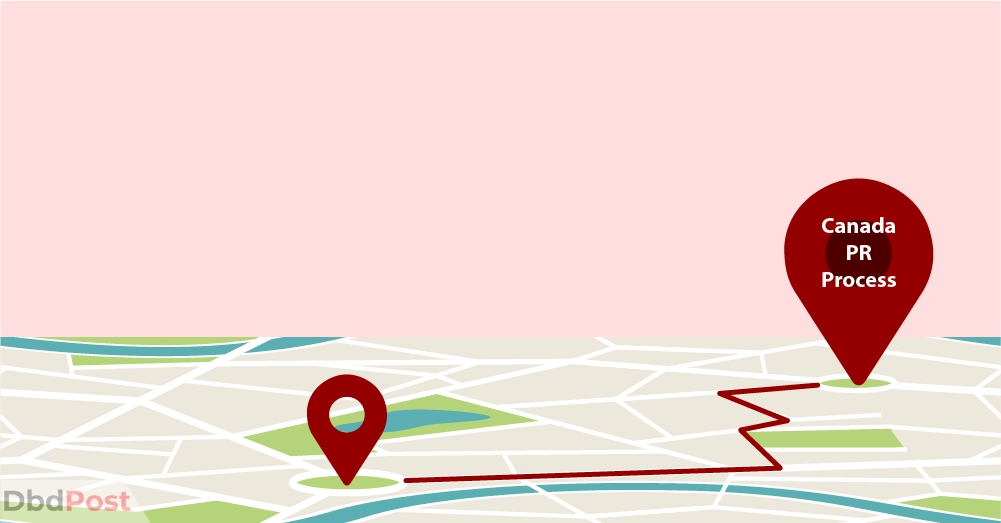
Getting Canada Permanent Residency (PR) can be tricky, but plenty of resources can help make the process easier.
This section will discuss several entities you can refer to for guidance. So, thoroughly review them to improve your chance of getting PR in Canada.
Government agencies
Canada has many organizations that are set up to manage and process immigration applications. These organizations are responsible for managing and processing immigration applications. Also, they provide information and resources on the different programs and requirements.
For example, Citizenship and Immigration Canada (CIC) and Immigration, Refugees and Citizenship Canada (IRCC) do a lot of work in this area. Also, the Canada Border Services Agency (CBSA) helps with processing applications. They can give you support and help answer any questions you may have.
Official websites:
- Immigration, Refugees and Citizenship Canada (IRCC)
- Citizenship and Immigration Canada (CIC)
- Canada Border Services Agency (CBSA)
Private firms and consultants
Private consulting firms and immigration lawyers are specialized professionals in immigration law who can provide guidance and assistance throughout the PR application process.
They offer services such as document processing, advice, and representation. RCIC-certified consultants are authorized by the Canadian government to provide immigration advice and representation and can assist with sponsorship applications, visitor visas, and study permits.
Although they charge fees, hiring an RCIC consultant can be beneficial if you need help navigating the PR process.
Online communities
Online communities are an excellent resource for getting answers from experts. Let’s look into the platforms and online communities you should look out for.
Quora: Quora is a popular forum for discussing Canada permanent resident visa topics. You can ask questions and get answers from experienced immigrants and experts.
LinkedIn: On LinkedIn, you can connect with professionals and get advice on job opportunities in Canada. You can find genuine professionals and service providers for one-on-one conversations.
Reddit: Reddit is one of the most popular platforms for forums and discussions worldwide. There you can find various subreddit communities. They are dedicated to discussing various aspects of the immigration process.
Reputed online blogs: Online blogs like Dbdpost provide helpful information and tips on the immigration process. You can find listicles, how-to guides, and tips and tricks about the immigration process.
Live Q&As: Podcasts and live-stream Q&A sessions areavailable on various platforms. There you can learn more about how to get PR in Canada and get answers to your questions in real time.
Why is Canada PR a popular choice for immigrants?
1. High living standards

Canada has some of the best standards of living in the world. They provide disability pensions and children’s benefits to help needy people and spend a lot on education. Canada Pension plan is also great and has great family and caregiving benefits.
Plus, their infrastructures are always updated, so 100% of their population can access electricity. Their GDP is a whopping 1.99 trillion USD, with 4.5% growth in 2021. [20]World Bank, “Canada GDP, https://data.worldbank.org/country/CA#:~:text=0.8-,Economic,-Indicator”
They also use renewable sources to produce electricity other than hydroelectricity. And their forests make up an impressive 38.7% of their land with decreasing CO2 emissions. [21]World Bank, “Canada environment, https://data.worldbank.org/country/CA#:~:text=0.1-,Environment,-Indicator”
2. Job opportunities
Canada has a diverse and robust economy, offering many job opportunities across various fields. This allows immigrants to find work in their fields of expertise or to explore new career paths.
The country has a GDP of around 3 trillion and a per capita income of 52,000 USD. The unemployment rate is low at only 7.5%. [22]World Bank, “Canada Economy, https://data.worldbank.org/country/CA#:~:text=0.8-,Economic,Personal%20remittances%2C%20received%20(%25%20of%20GDP),-0.0″
Canada also provides many benefits to workers, such as health benefits, family benefits, insurance, and rights. These benefits help to ensure that workers have a good standard of living and are protected in case of illness or injury.
Overall, Canada provides excellent job opportunities and benefits to its citizens and immigrants.
3. Human rights
Canada is known for its strong commitment to human rights and freedom. The country has a Charter of Rights and Freedoms that guarantees basic human rights such as freedom of speech, religion, and equality.
Additionally, the government of Canada supports multiculturalism. This allows all residents and immigrants to express and celebrate their heritage.
The government, civil society organizations, and citizens are working together to ensure that Canada continues to be a leader in promoting and protecting human rights.
4. World-class education

Canada is a top destination for international students, offering a wide range of educational options with over 8,000 colleges and 16,000 university programs.
Additionally, scholarships and work opportunities are available to help offset the cost of your studies. By participating in co-op work placements or internships, you can gain practical experience while studying.
Furthermore, a significant percentage of international students who work during or after graduation eventually become permanent residents within 10 years, making Canada an excellent place to study with numerous flexible education choices.
5. Healthcare

Regarding healthcare, the Public Health Agency of Canada (PHAC) looks after everyone. They provide information and guidance in many languages, which is helpful.
PHAC focuses on preventing disease and injuries, responding to public health threats, and promoting good physical and mental health.
Plus, they have free newcomer services when people arrive in the country. Canada also has walk-in clinics, so you can easily get medical care.
6. Large number of invitations every year
Canada has a high annual immigration quota, so many people apply for Canadian permanent residency yearly.
There were more than 2.5 million applications in 2021. Out of them, more than 400,000 applications were grander permanent residency. This increases the chances for people wanting to immigrate to Canada. [23]Canada government, “2021 PR numbers, https://www.canada.ca/en/immigration-refugees-citizenship/news/2021/12/canada-welcomes-the-most-immigrants-in-a-single-year-in-its-history.html”
Additionally, the Canadian government is committed to increasing immigration levels, as it sees immigration as a key factor in the country’s economic growth and development.
Related Stories
- Discover the ways to get the opportunity to live and work in Canada by obtaining a Canada work permit visa.
- Before applying for Canada PR, it’s important to understand the requirements and eligibility criteria. Check out our guide on eligibility – here.
- Evaluate your chances of obtaining Canada PR using our PR points calculator guide.
- Find the various best consultancy for Canada PR in our guide if you need expert guidance for your Canada PR application.
- Want to immigrate to Canada? Express Entry may be the fastest way to do it.
FAQs
How many ways are there to get PR in Canada?
There are 15 types of Permanent Residency (PR) that you can apply for in Canada. However, the requirements for each program can vary. [24]Canda government, “Immigration, https://www.canada.ca/en/immigration-refugees-citizenship/services/immigrate-canada.html”
How to get PR in Canada while studying?
You can apply for the Canadian Experience Class, the Federal Skilled Worker Program, or the Provincial Nominee Program.
Some programs require Canadian work experience, so read through all the details first. The Post-Graduation Work Permit Program lets students get a work permit after graduating. [25]Canda government, “Student work permit, https://www.cic.gc.ca/english/helpcentre/answer.asp?qnum=514&top=15″
How long does it take to get PR in Canada?
Applying for permanent residence in Canada can take anywhere from six months to 38 months, depending on the type of program you’re applying for.
Each program has different processing times and requirements, so it’s important to ensure you have your applications in order before submitting them. [26]Canada government, “Processing time, https://www.canada.ca/en/immigration-refugees-citizenship/services/application/check-processing-times.html”
How easy is it to get PR in Canada?
The decision often depends on how many people are applying and their profiles. Having a strong profile and specialized skills is important to increase your chances.
How many points are required to get PR in Canada?
Final thoughts
The process of how to get PR in Canada may sound complex, but with proper guidance, you can simplify the process. For a better understanding, it’s important to know about the programs and find the right one.
Applying for Canada PR involves submitting various documents, paying fees, and other additional steps.
It is important to know the processing times, which can vary depending on the type of PR you are applying for.
Following the steps outlined in this Dbd guide can increase your chances of landing a PR.
- 107shares
- Facebook Messenger
About the author

Raju Chopra
Raju Chopra is an experienced immigration attorney with a Master's degree in Law from the University of Colorado Boulder. He has worked on international immigration matters for the past ten years, helping clients navigate the often confusing world of global visa laws and regulations. Raju is passionate about offering practical legal advice and guidance to those looking for work abroad or seeking visas for travel.
